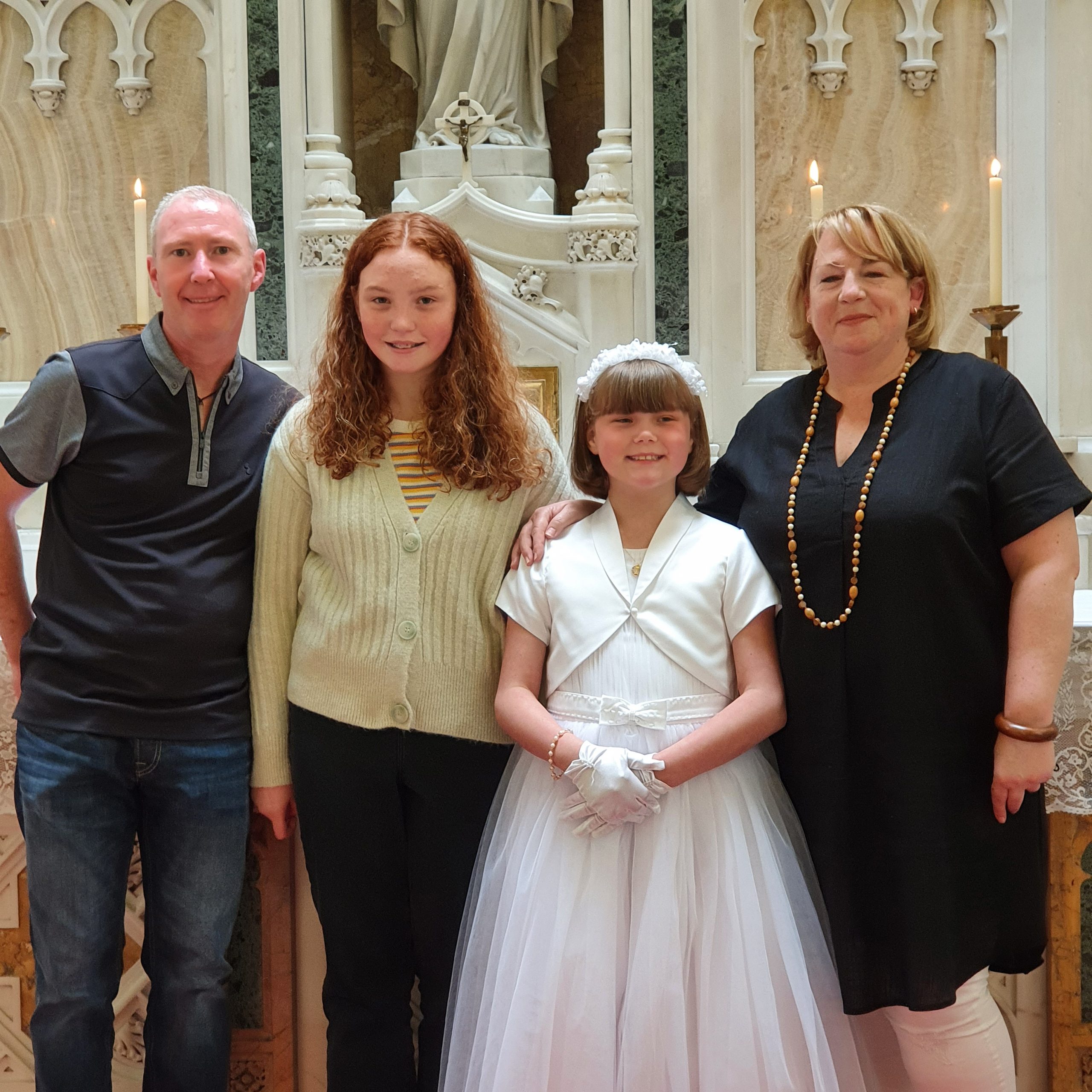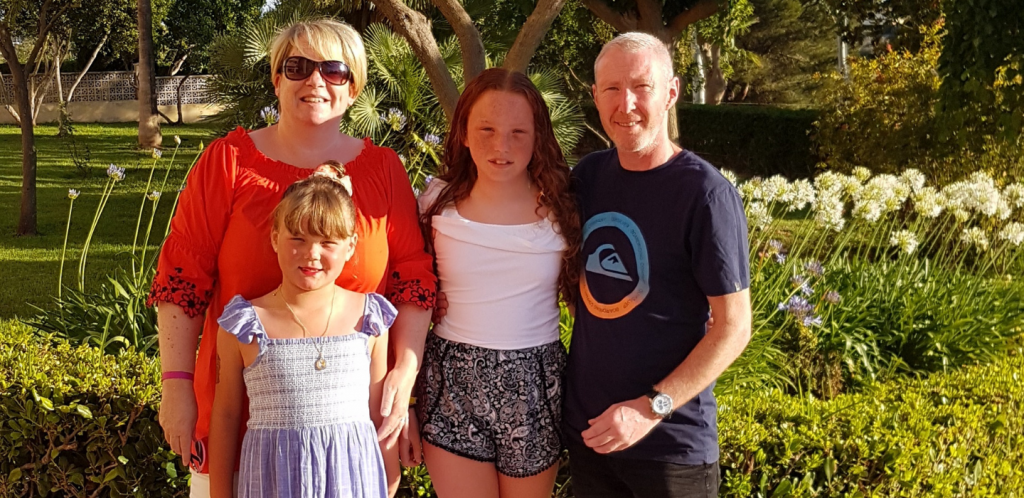When John Casey was told he’d been diagnosed with Parkinson’s, he immediately thought it meant the end of his career as a firefighter with West Yorkshire Fire and Rescue Service.
However, after months of hard work, tests and coming to terms with the news himself, he was recently cleared to return to duties as his symptoms remain manageable. Now he wants to share his journey with others, as well as his experiences with the charity during the most difficult times.
“It was about March last year that I started feeling a pain in my left forearm,” says John, 52. “I noticed it with heavy lifting, but I thought straight away it must be a trapped nerve or something like that.
“It wasn’t affecting my work it was just quite painful.
“I eventually transferred to a different Watch and it was okay for a bit, but then a couple of months later my Watch Commander and Station Manager noticed I was struggling a bit. We decided that I should step off the run for a while, pending further medical investigations.

“I went onto modified duties straight away and had it seen to by a number of specialists. All these people had no idea what was wrong with me, and this was all amid Covid, so it was extremely difficult to arrange to see people… Meanwhile, I was working at the opposite end of the station to where the crews are.
“Because of Covid, I was unable to go through the engine house, so I was very isolated. I was coming to work every day with this increasingly heavy feeling.”
As John awaited any news on what was causing the pain, all while feeling isolated from his colleagues, he began to struggle with his mental health.
He had heard about the support the charity offers and reached out to see how we could help. While we’d had to temporarily close our centres at the time, due to pandemic restrictions amid lockdown, we were able to speak to him over the phone and come up with a solution that met his needs at the time.
“In about November last year, I started to really struggle with my mental health,” he says. “I was offered the opportunity to go down to Harcombe House around then with my youngest daughter, just for a self-catering break. It was a complete escape to be honest.
“The facilities weren’t open at the time, due to Covid, so we enjoyed some nice walks through the woods in the grounds and also travelled to the various coasts nearby.
“I’d been to Jubilee House before, a few years back when I’d been struggling, just in one of the rental properties – so I knew how much a break away could prove beneficial.”
While John says the break away was exactly what he needed, he did begin to struggle again when he returned and went back to modified duties.
“I went off sick in November when things got worse, mental health wise,” he says. “I really did hit rock bottom at that point. I didn’t want to get up in the morning, but I had to take my daughters to school. Then I’d come home and just want to go back to bed. I got into a hole, a bit of a bottomless pit really.
“I rang my GP and eventually got put on some anti-depressants by a psychiatrist.”
John remained off work in the months that followed, before finally seeing a neurologist in March this year.
“I went in and it’s a day I’ll never forget,” recalls John. “The consultant asked me to walk up and down the corridor, before doing a load of movements. After a few minutes he told me, in his opinion, he was 99% certain I had Parkinson’s.
“I was extremely shocked, it was like being hit with a sledgehammer. He told me it wasn’t as bad as I thought, as there’s a lot of medication now that can help. But at the time I was just in complete shock.
“When I first found out my diagnosis, I immediately assumed it was a bit of a death sentence, but it’s not.”
John Casey
“I remember standing in the corridor afterwards, very alone and just shell-shocked. I didn’t know much about it, I just knew it was a life-altering, life-changing condition.
“Then you start thinking about the implications on your family too. I was only 51 – where would I work if I couldn’t be a firefighter?”
To make matters worse, John’s father had suffered an accident around the same time and sadly passed away a few months later.
Faced with an uncertain future in his career, and his own grief, John began to struggle again. However, he says the fire service were a constant support throughout – while he felt reassured knowing he could reach out to the charity too, should he need to.
“I kept having discussions with Union reps, HR and officers,” says John. “Fast forward a few weeks and it was recommended I see another consultant for a second opinion. I went and it was exactly the opposite of my first encounter. He explained how Parkinson’s is different for everyone.
“My medical adviser gave me permission to do my casualty care and trauma assessment refresher course straight away and that was a major boost for me.
“When I first found out my diagnosis, I immediately assumed it was a bit of a death sentence, but it’s not. It is degenerative and incurable, so it will eventually get worse, but it’s a very individual disease. The experts’ advice was to do what I can, when I can, for as long as I can. So that’s what I intend to do!”
John was given the go ahead to undergo tests with the fire service to return to normal duties, and he passed all of them. He has now been cleared to return to work, with regular assessments to ensure he’s okay to continue.
“Knowing the charity is there for me now is a huge reassurance,” he says. “I know it’s there and I know what’s available, from mental health support to the welfare team too. Then there’s also the opportunity for rehabilitation and recuperation.
“It’s great knowing it’s there.”
If you’re struggling with your physical or mental health, or you need support with your social wellbeing, we may be able to help you. Call our Support Line on 0800 389 8820, make an enquiry online or register for MyFFC and visit the ‘Access Support’ tab.
You can also join our ‘Share Your Story Group in MyFFC to chat to others who have received the charity’s support, or enquire about sharing your own story.

